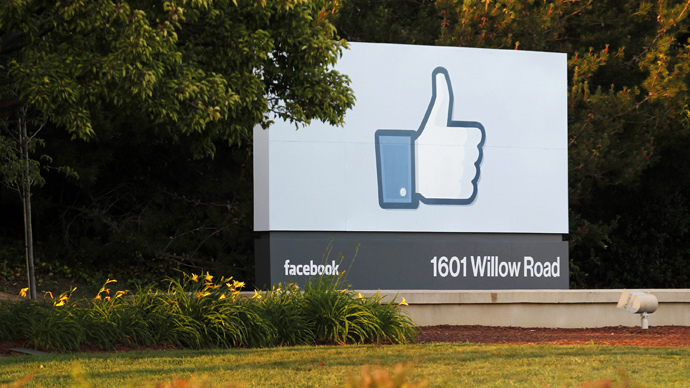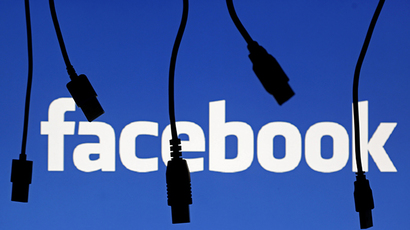Facebook 'likes' healthcare, considers tracking users' lifestyle data

It's no secret that Facebook tracks users’ friendships and monitors their interests for advertising placement – but now sources tell Reuters the social networking site is also curious about subscribers' health information.
Three people familiar with discussions underway at the social
media giant told Reuters that the company is interested in
expanding into healthcare, and has been meeting with medical
providers and experts.
As the plans are in development, the individuals requested
anonymity but said that Facebook “is setting up a research
and development unit to test new health app...[for]
support communities...[and] new preventative care
applications that would help people improve their
lifestyles.”
READ MORE: Facebook toughens user-data research rules, but offers no ‘opt-out’
Last year, for example, Facebook’s geodata was used in a Boston
Children’s Hospital study to analyze obesity in various
communities. The study, published in the PLOS One journal, showed
that in cities or neighborhoods where a higher percentage of
people listed healthy, active interests on Facebook – users may
have “liked” activities such as running or biking – the
lower that area’s obesity rate turned out to be. A large
percentage of Facebook users with television-related interests,
meanwhile, tended to have higher rates of obesity.
"Online social networks like Facebook represent a new
high-value, low-cost data stream for looking at health at a
population level,” said the study team. “[T]his kind of
social network analysis could help generate real-time estimates
of obesity levels in an area, help target public health campaigns
that would promote healthy behavior change, and assess the
success of those campaigns."
READ MORE: Websites say they’re scared of big changes to Facebook
However, the prospect of having a third party like Facebook
tracking important details about a person’s health – or even the
questions a person might seek answers to online – immediately
raises questions about privacy and how medical information will
be protected, if at all.
In the US, there is no universal information privacy law.
According to the Electronic Frontier Foundation, the Health
Insurance Portability and Accountability Act is a disclosure
regulation law for patients, but it is limited to healthcare
providers, health plans, or healthcare clearinghouses. It does
not apply to a cell phone app or genetic testing service, and
therefore won’t apply to social media.
READ MORE: ‘Google 2.0’ looking to build cities and airports in the future














